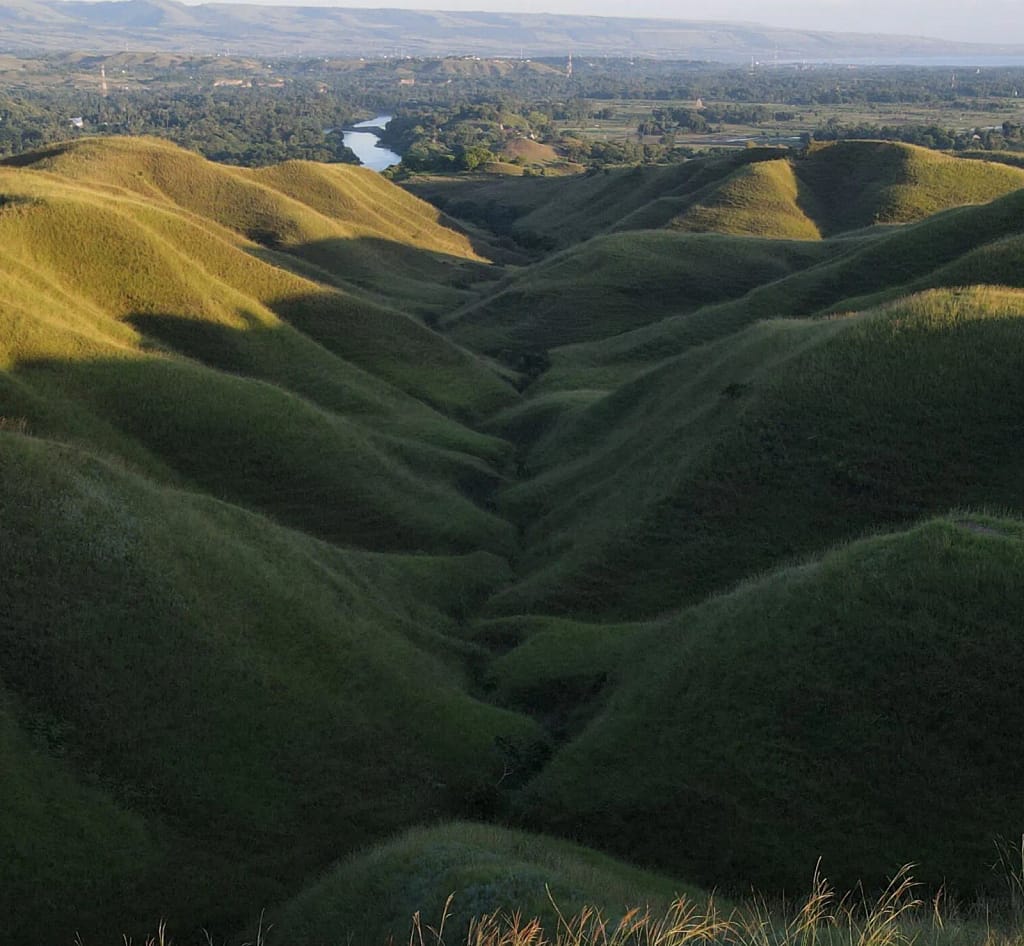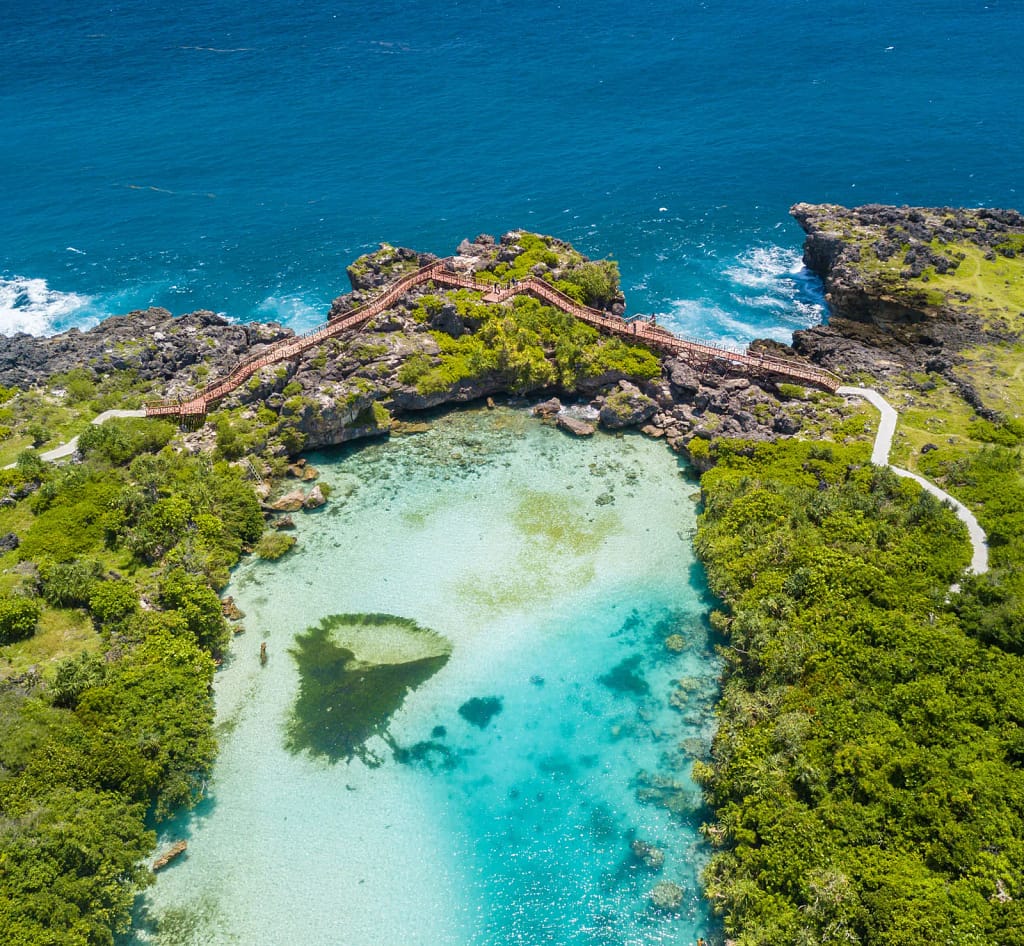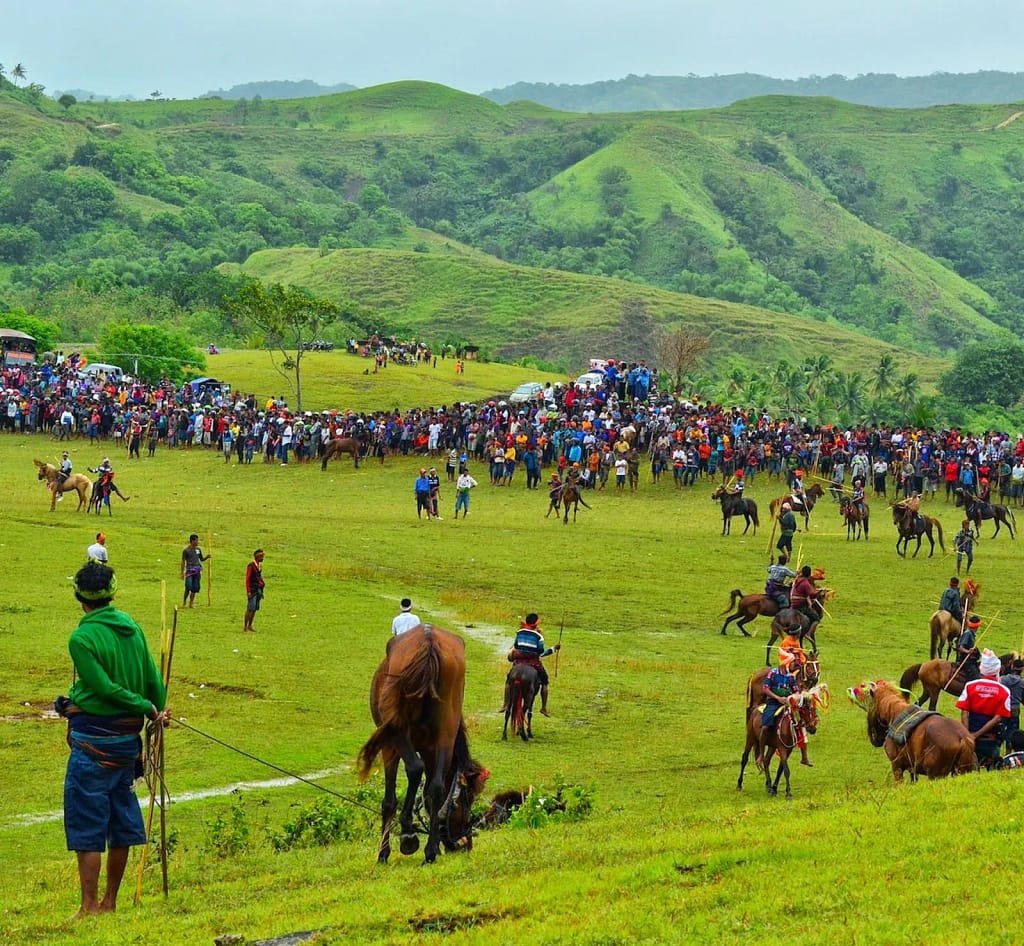Discover Sumba
Natural Wonders
Beyond the beaches, Sumba boasts stunning waterfalls, limestone caves, and savannah-like hills. Don’t miss the enchanting Weekuri Lagoon or the majestic Lapopu Waterfall.
Warm Community
The people of Sumba are known for their hospitality and warmth, making every visitor feel like a part of their extended family.
Cultural Richness
Sumba is home to a vibrant and ancient culture. Explore traditional villages, witness the iconic Pasola festival, or admire the intricate handwoven Ikat textiles, each telling a story of the island’s history and traditions.
Sumba
Nestled in the heart of East Nusa Tenggara, Indonesia, the island of Sumba is a land of breathtaking landscapes and rich cultural heritage. Among its most unique features are the Sumba tribes, indigenous communities that have preserved their ancestral traditions and way of life for centuries. These tribes embody the spirit of Sumba, with their vibrant customs, sacred rituals, and profound connection to nature.
Evolution of the Ritual
The Sumbanese people are known for their deep respect for their traditions, which have been passed down through generations. The tribes of Sumba are predominantly followers of Marapu, an ancient animist belief system that celebrates harmony between the physical and spiritual realms. This belief influences nearly every aspect of their lives, from their architecture to their rituals and daily practices.
Unique Traditions and Practices
The Sumba tribes are famous for their distinctive culture, which is evident in the following aspects:
Marapu Belief System
The Marapu religion forms the cornerstone of Sumbanese culture. It is a spiritual practice centered on ancestor worship, harmony with nature, and maintaining balance between the seen and unseen worlds. Rituals, prayers, and offerings to the spirits are integral to their daily lives, reflecting their deep spirituality.
Megalithic Tombs
Sumba is one of the few places in the world where the tradition of megalithic burial practices still thrives. The tribes construct massive stone tombs for their deceased, a process that can take years and requires the collaborative effort of the entire community. These tombs serve as a testament to their respect for their ancestors and their belief in life after death.
Traditional Ikat Weaving
Ikat weaving is an art form that has been perfected by the Sumba tribes over centuries. Using natural dyes and intricate techniques, Sumbanese women create stunning textiles that often depict symbolic patterns and motifs. These textiles are not only beautiful but also serve as cultural and spiritual symbols.
Pasola Festival
One of the most iconic traditions of the Sumba tribes is the Pasola Festival, an annual event that combines spirituality and sport. This ritualistic spear-throwing battle is held to honor the ancestors and ensure a bountiful harvest. It is a dramatic and colorful spectacle that attracts visitors from around the world.
A Lifestyle Rooted in Nature
The Sumba tribes live in harmony with their environment, relying on agriculture and livestock for their livelihoods. Traditional villages are built on hilltops, with unique thatched-roof houses that are both functional and symbolic. The high-pitched roofs are believed to connect the earthly realm to the heavens, reflecting their Marapu beliefs.
Challenges and Preservation
Despite their resilience, the Sumba tribes face challenges in the modern era, including economic pressures and the influence of globalization. However, efforts are being made to preserve their unique culture through sustainable tourism, education, and community-based initiatives. Visitors to Sumba have the opportunity to immerse themselves in the island’s traditions while contributing to their preservation.
Visiting the Sumba Tribes
A visit to Sumba is more than just a journey to an exotic destination—it is an opportunity to witness a way of life that has remained largely untouched by time. From participating in traditional ceremonies to exploring megalithic villages and marveling at intricate ikat textiles, visitors are invited to connect with the island’s rich heritage and the warm hospitality of its people.
The Sumba tribes offer a profound lesson in living harmoniously with nature and cherishing the legacy of one’s ancestors. In a rapidly changing world, their way of life serves as a reminder of the enduring value of tradition, community, and spirituality.
Sumba's Must-Visit Destinations:
Sumba, a mesmerizing island in East Nusa Tenggara, Indonesia, is a treasure trove of natural wonders, cultural heritage, and serene landscapes. Far from the bustling crowds of Bali, Sumba offers a tranquil escape for travelers seeking a mix of adventure and cultural immersion. Here’s a guide to Sumba’s must-visit destinations, showcasing why this island deserves a spot on your travel bucket list.

Wairinding Hills
Wairinding Hills is a dreamlike destination featuring rolling savannas that stretch as far as the eye can see. Depending on the season, the hills change from lush green during the rainy months to golden brown in the dry season.
Highlights
- Capture breathtaking sunrise or sunset views.
- Trek through the hills for a serene experience.
- Enjoy a picnic amidst the tranquil landscape.

Ratenggaro Village
For a deep dive into Sumba’s cultural heritage, visit Ratenggaro Village. Known for its towering traditional houses with high-pitched roofs, the village offers a glimpse into the ancient Marapu belief system and Sumbanese way of life.
Highlights
- Explore the megalithic tombs that date back centuries.
- Learn about traditional rituals and ceremonies.
- Admire the unique architecture of Sumbanese homes.

Weekuri Lagoon
One of Sumba’s most enchanting spots, Weekuri Lagoon is a natural saltwater pool with crystal-clear turquoise waters. Surrounded by rugged cliffs and lush vegetation, the lagoon offers a peaceful haven for swimming and relaxation.
Highlights
- Swim in warm, transparent waters.
- Walk along the rocky cliffs for panoramic views.
- Witness the lagoon’s stunning colors under the sunlight.

Lapopu Waterfall
Nestled in the lush forests of West Sumba, Lapopu Waterfall is the tallest waterfall on the island. Its multi-tiered cascade flows into a clear pool, perfect for a refreshing swim.
Highlights
- Hike through scenic trails to reach the falls.
- Swim in the cool, natural pools.
- Enjoy the soothing sounds of cascading water.

Walakiri Beach
Walakiri Beach is famous for its iconic mangrove trees, which create striking silhouettes during sunset. This serene beach is a favorite among photographers and those seeking a quiet retreat.
Highlights
- Capture stunning sunset photos of the mangroves.
- Walk along the soft, white sand.
- Swim in the calm, shallow waters.

Pasola Fields
If you’re visiting Sumba between February and March, don’t miss the Pasola Festival, a traditional spear-throwing battle that’s both a thrilling sport and a sacred ritual. Held on vast open fields, it’s a spectacle of Sumbanese culture.
Highlights
- Witness the exhilarating Pasola battles.
- Learn about the festival’s spiritual significance.
- Explore nearby villages to experience local traditions.

Mandorak Beach
Hidden away on the western tip of Sumba, Mandorak Beach is a secluded paradise surrounded by dramatic cliffs. Its powdery white sand and crystal-clear waters make it a perfect spot for relaxation.
Highlights
- Lounge on the quiet, untouched beach.
- Explore the surrounding cliffs and caves.
- Snorkel to discover vibrant marine life.

Prai Ijing Village
Prai Ijing Village is another must-visit for history and culture enthusiasts. This well-preserved village is perched on a hill, offering panoramic views of the surrounding countryside.
Highlights
- Stroll through the village to admire traditional homes.
- Meet local artisans and learn about their crafts.
- Enjoy the serene atmosphere and breathtaking vistas.

Tarung and Waitabar Villages
Located in West Sumba, these traditional villages are ideal for those wanting to experience authentic Sumbanese culture. The villages are famous for their traditional houses, ancestral rituals, and intricate ikat weaving.
Highlights
- Observe the weaving process and buy handwoven ikat textiles.
- Learn about the Marapu belief system from the villagers.
- Experience traditional ceremonies and daily life.
The Pasola Festival
The Pasola Festival is a traditional equestrian competition where two teams of horse riders throw wooden spears at each other. Both a cultural spectacle and a significant ritual in Sumba’s Marapu religion, the festival is a vibrant expression of the island’s traditions and spiritual beliefs.

When and Where
The festival is held annually in February or March, marking the start of the harvest season. The exact dates are determined by observations of natural phenomena, such as the arrival of sea worms (“nyale”), which signal the appropriate time for the event. The Pasola Festival takes place in the Kodi, Wanukaka, and Lamboya regions of western Sumba, drawing participants and spectators from across the island and beyond.
Cultural Significance
The Pasola Festival celebrates the beginning of the harvest season, honors Sumba’s cultural heritage, and strengthens the relationship between humans and their ancestors. It is part of the Marapu Ritual, the indigenous religion of the Sumba people. The ritual symbolizes a blood sacrifice, believed to ensure prosperity and a bountiful harvest. Traditionally, participants aimed to spill blood on the ground as an offering to the spirits.
Evolution of the Ritual
The word “Pasola” translates to “spear” in the local language, reflecting the central role of this weapon in the ritual. In the past, the spears used in the competition were sharp, and participants risked injury to fulfill the symbolic requirement of spilling blood. Today, the spears have been modified with blunt tips, making the event a safer, mock battle while retaining its symbolic significance.
The Ritual Process
The festival begins with prayers led by a traditional clergyman, who seeks blessings for both teams. Once the prayers conclude, the riders, dressed in traditional attire, race their horses and throw spears at each other in a thrilling display of skill, bravery, and communal spirit. This event not only showcases the riders’ abilities but also fosters unity among participants and spectators, serving as a reminder of Sumba’s shared cultural identity.
A Modern Attraction
While deeply rooted in tradition, the Pasola Festival has evolved into a major cultural event that attracts visitors from around the world. It offers a unique opportunity to witness Sumba’s rich heritage and vibrant community life, making it a must-see for anyone visiting the island.
The Pasola Festival exemplifies the enduring spirit and cultural wealth of Sumba. As it continues to adapt to modern sensibilities, the festival remains a powerful connection to the island’s ancestral traditions and a vibrant celebration of its people’s identity.
Find our more in our article about Things to Do in Sumba.
